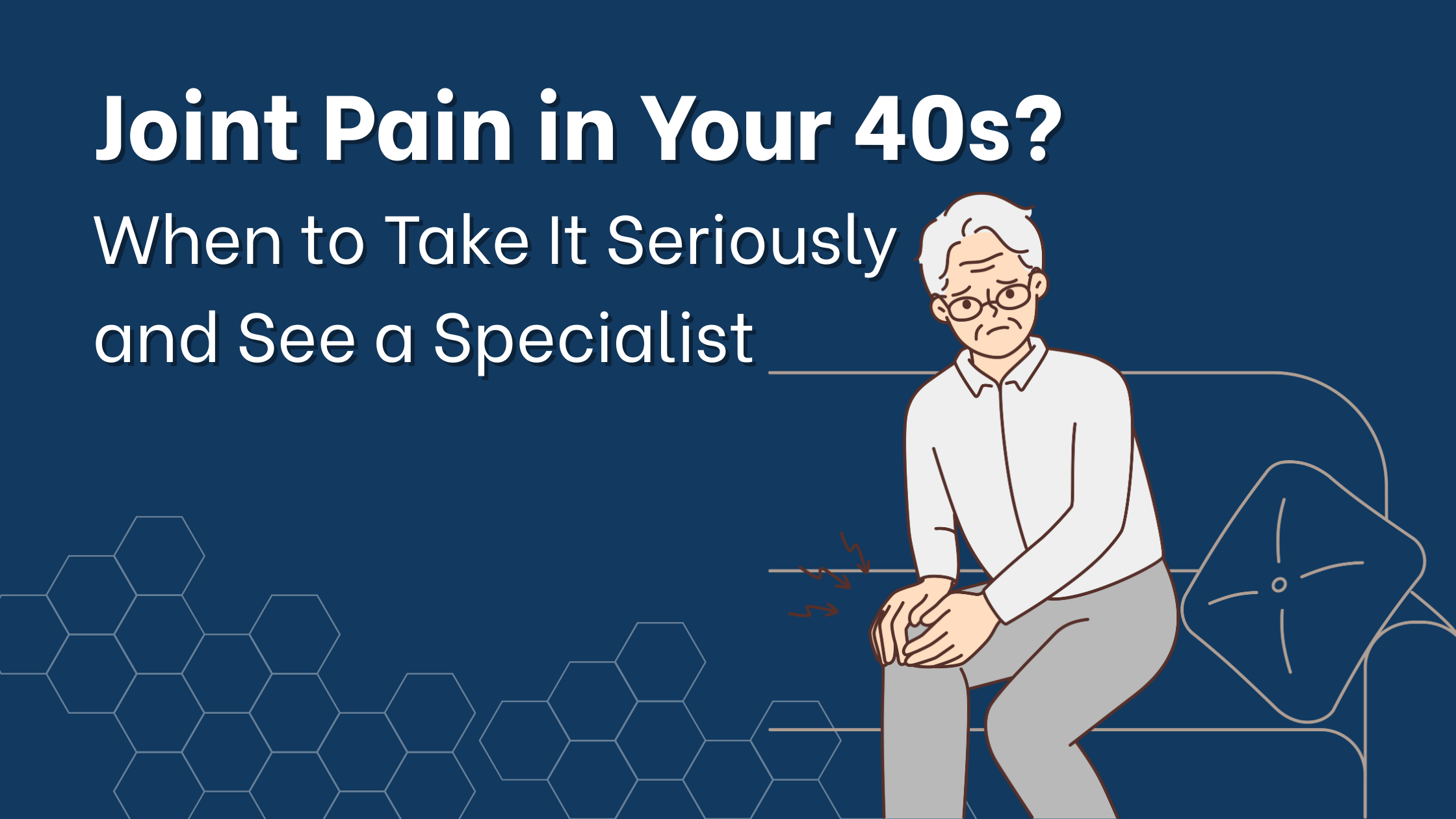
Joint Pain in Your 40s? When to Take It Seriously and See a Specialist

Turning 40 comes with wisdom, experience — and sometimes, unexpected aches and pains. If you’ve been noticing joint pain in your knees, hips, shoulders, or lower back, you’re not alone. But how do you know when it’s just aging and when it’s something more serious?
This blog by Dr. Mukund Agrawal, Nagpur’s leading orthopedic and robotic joint replacement specialist, will help you identify when joint pain is a red flag — and what to do about it.
Is Joint Pain Normal in Your 40s?
Some stiffness or soreness in the joints after strenuous activity or long periods of inactivity is common in your 40s. However, persistent joint pain is not something to ignore.
It could be an early sign of:
- Osteoarthritis
- Rheumatoid arthritis
- Early cartilage wear
- Tendonitis
- Overuse injuries
- Undiagnosed past injuries
Early intervention can prevent worsening, reduce long-term damage, and delay or avoid surgery altogether.
Common Signs That Need Medical Attention
Here are warning signs that your joint pain needs evaluation by a specialist:
1. Pain Lasting More Than 2 Weeks
If over-the-counter painkillers or rest don’t help and the pain continues for more than 14 days, it’s time to see a doctor.
2. Swelling or Warmth Around Joints
These may indicate inflammation or fluid accumulation—often signs of arthritis or injury.
3. Morning Stiffness
Feeling stiff for more than 30 minutes after waking up may be a sign of early osteoarthritis or autoimmune issues.
4. Clicking or Locking Joints
If your joints make noise, get stuck, or feel like they might give out, this could signal cartilage wear or ligament damage.
5. Reduced Range of Motion
Struggling to fully bend or straighten your knee, hip, or shoulder may mean degeneration or mechanical issues inside the joint.
6. Impact on Daily Life
If joint pain is stopping you from walking, exercising, sleeping, or enjoying life — it’s worth investigating.
Why Early Diagnosis Matters
Ignoring early joint pain in your 40s may lead to:
- Accelerated cartilage damage
- Chronic inflammation
- Deformities
- Need for early joint replacement
But with early care, you can:
✅ Reduce pain naturally
✅ Improve mobility
✅ Strengthen supporting muscles
✅ Delay surgery with preventive care
What to Expect During an Orthopedic Consultation
When you visit Dr. Mukund Agrawal in Nagpur, here’s what happens:
- Detailed Physical Assessment
He’ll evaluate joint alignment, range of motion, and pain response. - Advanced Diagnostics
Digital X-rays, MRIs, or blood tests to confirm the root cause. - Personalized Treatment Plan
Non-surgical methods like physiotherapy, Ortho-biologics, or regenerative ortho care may be recommended.
Surgical Option If Needed
If surgery is advised, Dr. Agrawal offers minimally invasive or robotic joint replacements for faster recovery and better results.
Take Action Early: You Deserve Pain-Free Movement
Joint pain in your 40s isn’t something to brush off. It could be your body’s way of warning you that something deeper is wrong. Early diagnosis and modern orthopedic care can prevent disability, restore strength, and keep you active.
Why Choose Dr. Mukund Agrawal?
- International training in UK & USA
- Expertise in Robotic Knee, Hip, and Shoulder Surgery
- Arthroscopy, Ortho-biologics, and Regenerative treatments
- Thousands of happy patients in Nagpur and Central India
- Patient-first, precision-driven approach